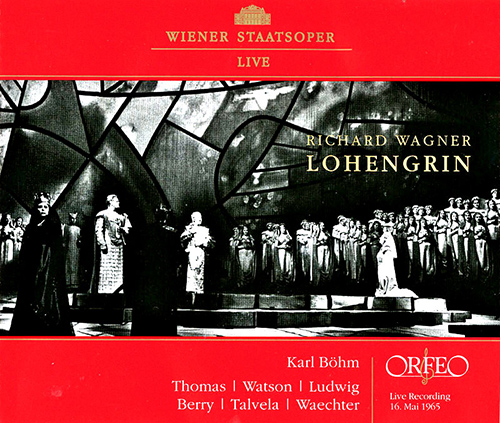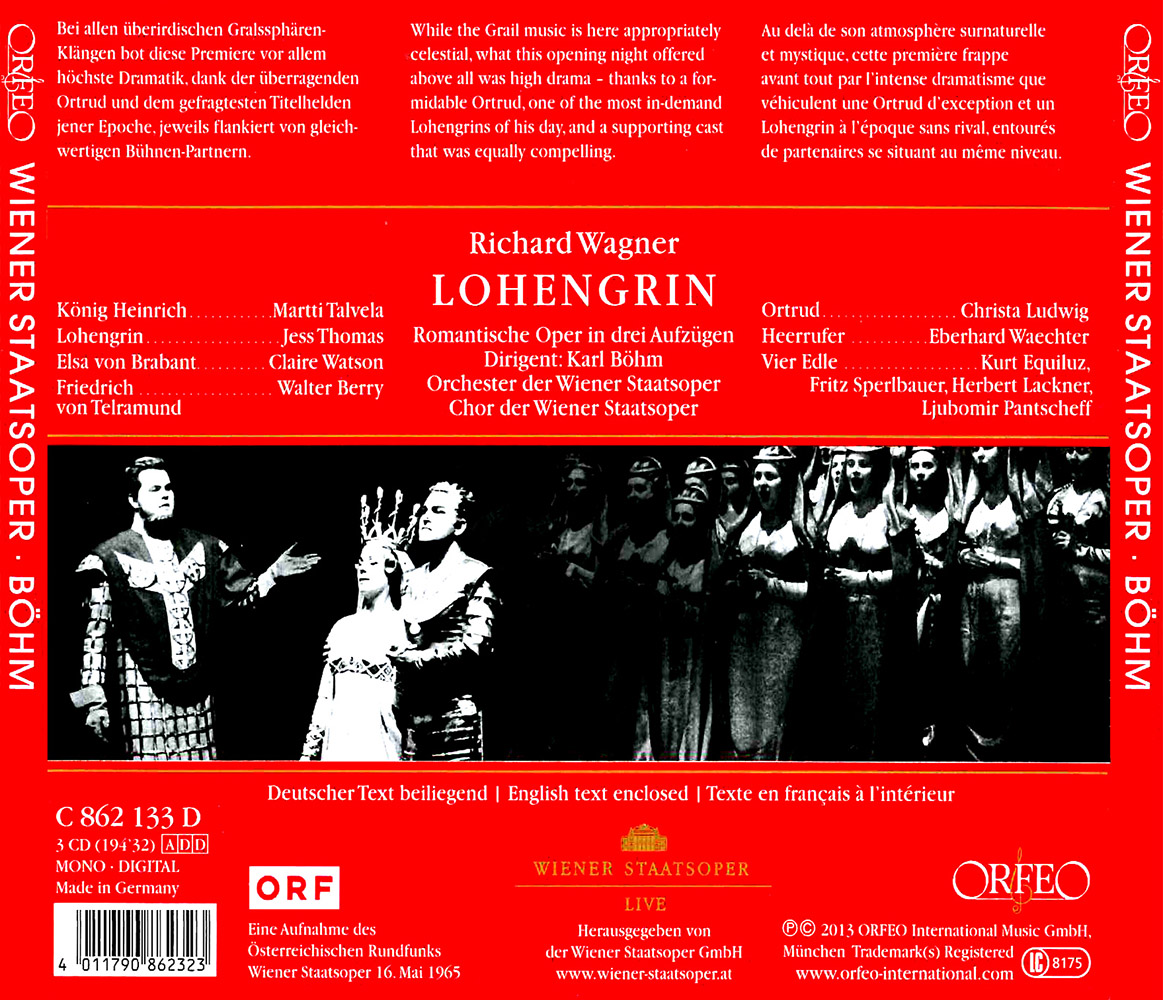Wagner: Lohengrin
For a performance of Richard Wagner’s Lohengrin to be completely successful, it depends largely on the “evil” couple who stand opposed to the Swan Knight and the girl he protects, Elsa. The 1965 production at the Vienna State Opera was acclaimed for its musical aspects, and on its opening night Christa Ludwig as Ortrud made evident why Wagner himself described this character as “terribly magnificent”. Christa Ludwig celebrates her 85th birthday on 16 March 2013, and with her interpretation of roles such as this she secured for herself a place in the annals of the Vienna State Opera. Her curse (“Entweihte Götter!”) was accorded spontaneous ovations by the audience. And the subtlety that she brings to this role – straddling as it does the range of a dramatic soprano and a dramatic mezzo – makes this sorceress the undisputed manipulator of the action. All this can be heard clearly, too, on this live recording. With the dramatic baritone Walter Berry as Telramund, she had a partner on that evening whose vocal power was hitherto largely unsuspected – yet who offered no less vocal sophistication on account of it. Overall, the performance on that evening was stormier and more agitated than many a more “ethereal”, enraptured version such as one often hears. It was driven onwards with precision by Karl Böhm at the helm of the orchestra of the Vienna State Opera, and with a State Opera Chorus that had been excellently prepared by Wilhelm Pitz. Eberhard Waechter as the Herold and Martti Talvela as King Heinrich were powerfully resplendent, while Claire Watson as Elsa and Jess Thomas as the title hero formed the “good” couple, rounding off this superb cast with their bright tone colours. Her voice – schooled in Mozart – was slender and clear in focus, while his virile tenor, clear in accentuation and in diction, offered a model of the Wagner style of the 1960s that also dominated in Bayreuth (and was preferred by the director of this Vienna production, Wieland Wagner). This Lohengrin offered a modern reading in the best sense of the word, allowing the characters their mythical grandeur while at the same time letting them approach the contemporary audience as men and women of flesh and blood.

















